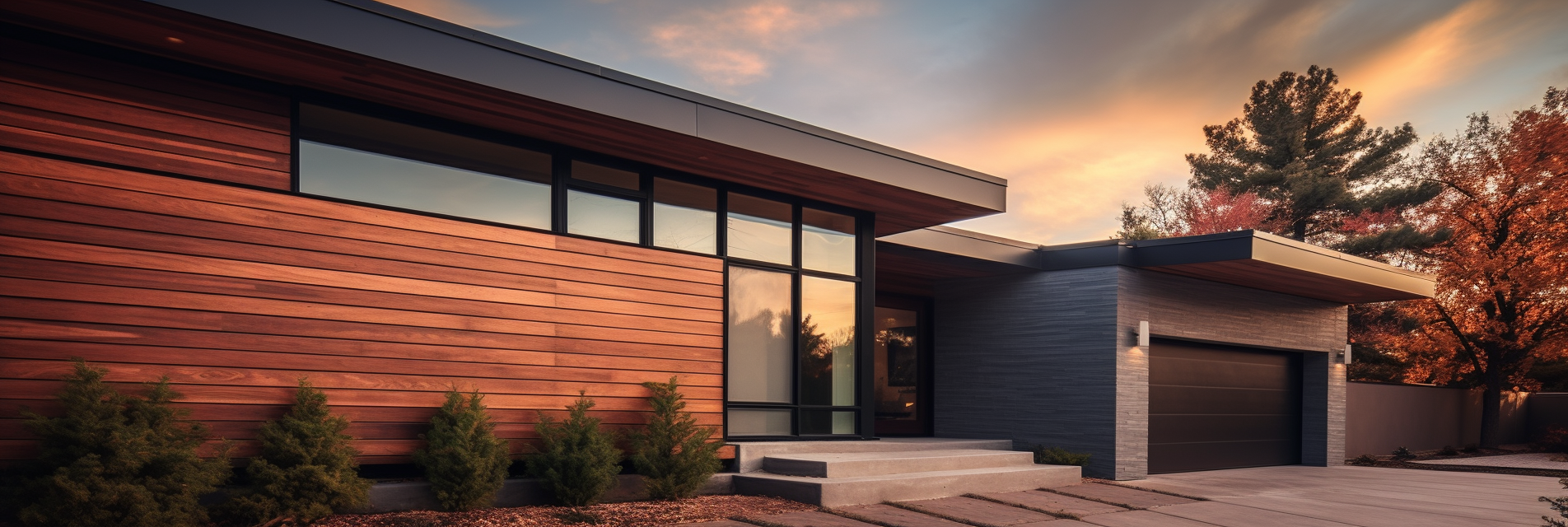What is Thermally Modified Wood?
Westwood Millwork crafts premium Thermally Modified Wood for diverse indoor and outdoor uses like siding, decking, and architectural millwork. Our process, free from harsh chemicals, utilizes heat and steam on responsibly harvested timber, preserving wood's natural beauty and durability. By replacing chemicals with high heat and steam, we naturally modify the wood's hemicellulose, enhancing durability without compromising aesthetics.
This Thermally Modified Wood offers improved stability, minimal warping, and reduced water absorption. The process eliminates compounds attracting rot and insects, resulting in a richer wood color. Through a 3-phase kiln process, our wood achieves hydrophobicity, resisting warping and chipping, and lasting over 25 years in various weather conditions.
What advantages does Thermally Modified Wood offer?
Enhanced resistance to mold, rot, and fungal decay is achieved by converting or eliminating their natural food sources during the modification process. Westwood Millwork's combines the natural attributes of wood with the durability of an engineered material. Improved dimensional stability reduces susceptibility to expansion and contraction from temperature or humidity changes, transforming it into a naturally stable building material.
Lightweight and easy to handle, Westwood Millwork's, with its reduced moisture content, is lighter than conventional wood materials like pressure-treated pine or exotic hardwoods. This makes it easier to work with, providing a user-friendly alternative for various projects.
Does Thermally Modified Wood require no maintenance?
Westwood Millwork's thermally modified wood boasts a lifespan exceeding 25 years without the need for oil finish or coating, showing no significant degradation, warping, or buckling. While a UV coating is recommended for preserving the factory coloring, many prefer the natural silvering that occurs over time without it. Our exterior products come pre-oiled, and you can use the same oil or any preferred UV protective finish as needed to maintain the wood's natural or silvered color. Maintenance frequency varies based on wood species, sun exposure, and environmental factors; consult your product's Installation Manual for specific recommendations.
Does Thermally Modified Wood have environmentally friendly characteristics?
Thermal modification, a natural process employing heat, steam, and slight pressure, substantially enhances the durability and stability of various wood species. Our production avoids harsh chemicals, eliminating the risk of any undesirable substances leaching out over time. We advocate for responsible forest stewardship, ensuring the domestic and sustainable sourcing of wood for a more environmentally friendly impact from inception to completion.
How is Thermally Modified Wood used?
Westwood Millwork's thermal modification process significantly enhances decay resistance and dimensional stability, making it suitable for both indoor and outdoor uses like siding, decking, soffits, and furniture. Its versatility extends to emerging applications, from musical instruments to standup paddleboards, as manufacturers recognize its advantageous properties. However, it's essential to note that thermally modified wood is not recommended for structural applications.
This versatile material finds applications in various commercial and residential settings, including decking, docks, siding, interior flooring, windows, doors, bathrooms, interiors, saunas, and outdoor furniture. It serves as a sustainable, domestic alternative to tropical wood species, chemically-preserved, and composite lumber.
Is Thermally Modified Wood priced at a high cost?
Given the versatility of our modification process across various wood species, there are likely choices available to suit most budgets. Westwood Millwork's offers competitive pricing when compared to alternatives like composites, exotic hardwoods, and premium softwoods. Additionally, our USA-based manufacturing contributes to a lower carbon footprint compared to exotic counterparts.

